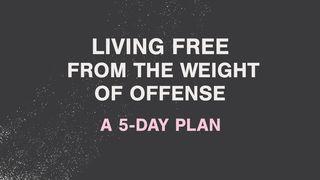It All Starts With A Budget!Sample

From month to month, we are responsible to pay bill after bill. And for many, if a bill payment system is not put in place, you may find yourself off track. Having a bill payment system is extremely important.
First things first, get organized! Remember, all things should be done decently and in proper order (1 Corinthians 14:40). Get an understanding of all of your recurring bills for the period, which are bills expected to be received on a continuous monthly basis.
No need for the guessing game
Without a sound system in place, we may never have a true understanding of whom we owe. Gather previous bills and get a realistic idea of all bills that are due each month. Also, get an understanding of bills that may be lingering from your past. If you are responsible for past bills, commit to paying a determined amount monthly to ensure you are able to reduce or eliminate these expenses by your target date.
Put a system in place
Consider using a paycheck bill system. This simply means paying your bills on the day you are paid or consider paying weekly if you are self-employed. For instance, if you are paid twice per month – on the first (1st) and the fifteenth (15th), it is a good idea to separate your bills into two categories. Bills that are due at the beginning of the period (1st through 15th) and bills that are due at the end of the period (16th through 31st).
Therefore, bills that are due between the first (1st) and the fifteenth (15th) should be paid on the first (1st). Whereas bills that are due between the fifteenth (15th) and thirtieth (30th), should be paid on the fifteenth (15th).
Paying your bills in this manner, not only allows you to pay your bills timely but also helps to avoid late fees.
Scripture
About this Plan

This devotional explores the basic budget principles using a Biblical approach. The book provides the necessary building blocks to conquer your financial goals by applying the key to successful budgeting.
More
Related plans

How to Read the Bible in a Way That Makes It Fun

Thirty Psalms for Thirty Days - Discover God's Character

Promises (S4-E1)

Devotions on F.I.R.E. Year Two

CHRISTMAS - ADVENT - Good News, Great Joy - Jean-Luc Trachsel

Grief Survivor: 30 Steps Toward Hope and Healing

God, Where Are You?

Prayers on Fire for Men: 7 Days Rediscovering the Fire of Your Faith

Living Free From the Weight of Offense
